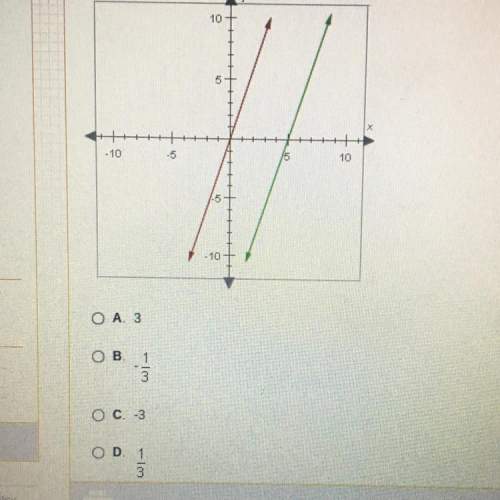
Mathematics, 20.09.2019 19:00 kawaiiblurainbow
Fred is answering a multiple-choice problem on an exam, and has to choose one of n options (exactly one of which is correct). let k be the event that he knows the answer, and r be the event that he gets the problem right (either through knowledge or through luck). suppose that if he knows the right answer he will de nitely get the problem right, but if he does not know then he will guess completely randomly. let p(k) = p. (a) find p(kjr) (in terms of p and n). (b) show that p(kjr) p, and explain why this makes sense intuitively. when (if ever) does p(kjr) equal p?

Answers: 1


Another question on Mathematics

Mathematics, 21.06.2019 19:00
Find the equation of the line with slope =8 and passing through (6,53) write your equation in the form y=mx+b
Answers: 1

Mathematics, 21.06.2019 22:00
Tom drove 206 miles in 3.9 hours. estimate his average speed.
Answers: 2

Mathematics, 21.06.2019 22:50
Which statement accurately describes how to perform a 90° clockwise rotation of point a (1,4) around the origin?
Answers: 2

Mathematics, 22.06.2019 00:00
This summer the number of tourists in salem increased 4.5% from last years total of 426000. how many more tourists came to salem this summer
Answers: 1
You know the right answer?
Fred is answering a multiple-choice problem on an exam, and has to choose one of n options (exactly...
Questions


Mathematics, 30.09.2019 06:10


Mathematics, 30.09.2019 06:10

English, 30.09.2019 06:10

English, 30.09.2019 06:10

Chemistry, 30.09.2019 06:10


Mathematics, 30.09.2019 06:10



Mathematics, 30.09.2019 06:10

Mathematics, 30.09.2019 06:10


History, 30.09.2019 06:10




English, 30.09.2019 06:10

English, 30.09.2019 06:10




